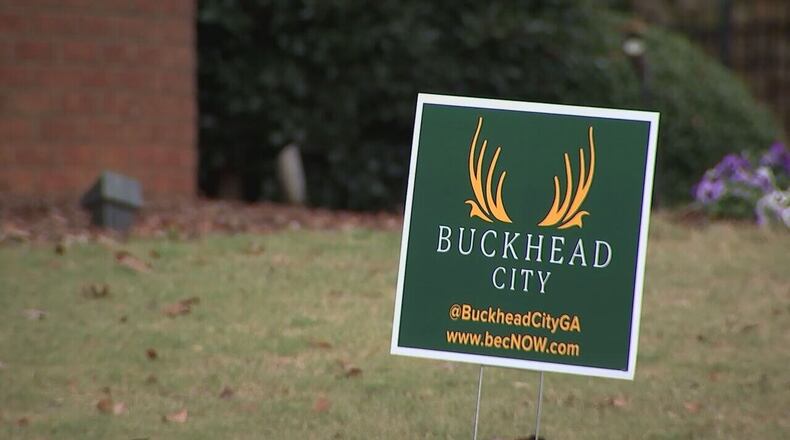Buckhead residents in favor of the neighborhood seceding from the city of Atlanta voiced frustration over crime during the second hearing on measures that would put the issue to a public vote.
A proposal being considered by lawmakers again this legislative session would let Buckhead residents within the proposed boundaries vote on whether to form the new city through a ballot referendum in November 2024.
The legislation is broken into two bills. Senate Bill 114 outlines details of the proposed “City of Buckhead City,” while Senate Bill 113 allows for the transfer of government services and facilities from one municipality to a newly formed municipality.
The Senate Committee on State and Local Governmental Operations held another hearing on the bills late Wednesday, which Chairman State Sen. Frank Ginn, a Danielsville Republican, said would be the last hearing before they vote.
The lead sponsor on both measures, Cataula Republican Sen. Randy Robertson, lives outside of the city of Atlanta, as do the other eight legislators signed on to the proposal.
Robertson has consistently defended his right to push the bills on behalf of the disgruntled Buckhead residents despite representing an area more than 100 miles away.
“I believe that the people that live within the area that they want to be called the city of Buckhead have a right to be heard,” Robertson said Wednesday. “And when I say a right to be heard, I’m not saying that they necessarily are going to go out of their former city but they have the right to go to the polls and vote on a referendum that gives them the choice if they want to form their own city.”
While the first meeting was dominated by testimony opposed to the secession effort, Buckhead residents in favor of the idea flooded the committee room voicing their dissatisfaction over how the city of Atlanta responds to issues from crime to potholes in the wealthy neighborhood.
Atlanta officials have faced the challenge of addressing high rates of violent crime not only in Buckhead but across the metro area. Mayor Andre Dickens touts his efforts to increase police presence, which includes outfitting the north Atlanta neighborhood with a new police precinct.
Proponents argue S.B. 114 simply creates an opportunity for Buckhead residents to have a say in their future and vote on secession.
“I urge you to give us the opportunity to vote and have a voice,” said Buckhead real estate agent Maryam Schwegman who said her family was the victim of a home intruder. “We should have that right.”
Opponents reiterated the logistical problems Buckhead secession would cause, from leaving many Atlanta Public School students in limbo to complicating city taxes and debt.
“There are a number of places where this legislation poses serious constitutional problems, that will result in more employment for me should it become law,” said Robert Ashe, an Atlanta attorney.
Ashe said one large piece of the puzzle yet to be hashed out by lawmakers is the management of the city’s water and sewage system, which provides service to much of the region.
“Unlike a park or a fire station, water and sewer systems follow geographic boundaries, not political boundaries,” he said. “There is no separate bucket system that could be taken out and left alone without an impact on the rest of the regional system.”
Ginn told attendees that the committee would meet again Monday morning to have discussion among members and vote on the measures.
About the Author
The Latest
Featured



